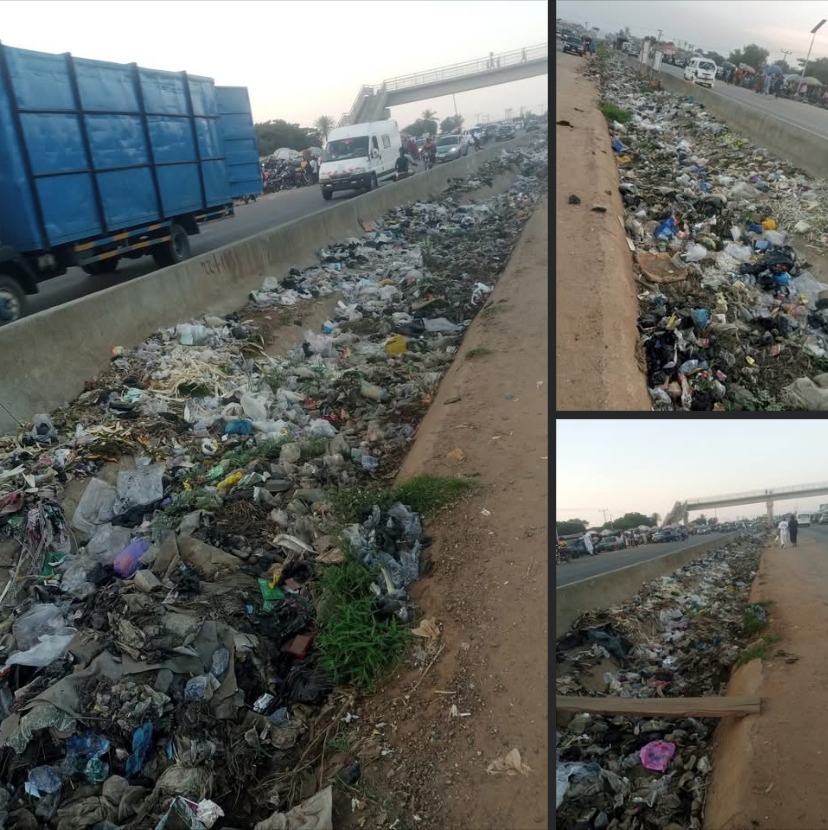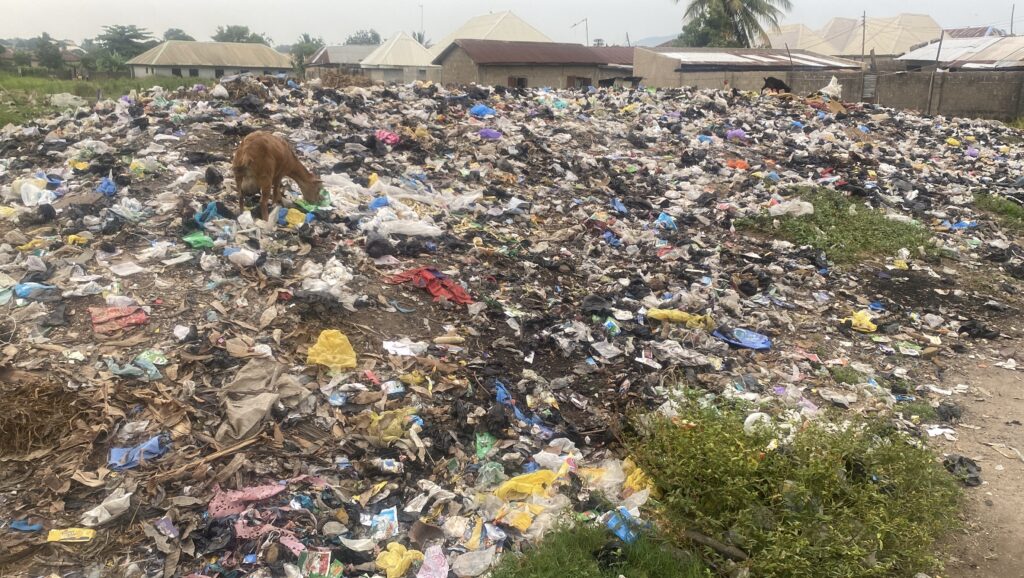
In a social media post that has sparked debate across Gwagwalada, popular community influencer Dobiza subtly challenged the official narrative that Gwagwalada Area Council is the “cleanest” in the Federal Capital Territory (FCT). His post, which appears at first glance to be congratulatory, has quickly turned into a talking point for residents, activists, and local critics.
On his Facebook page, Dobiza wrote:
“Big Congratulations to Gwagwalada Area Council. The cleanest Area Council in FCT. I believe this is what they want me to be saying. Gwagwalada is looking Nice. Dobiza Dobiza. ONE MAN SQUAD.”
The post was accompanied by a series of photographs showing overflowing dustbins, littered streets, and scattered waste across several districts. The images, juxtaposed with the celebratory tone of the text, were widely interpreted by netizens as a satirical critique of the council’s claims and a pointed message directed at the Gwagwalada supervising councilor of Environmental, Bash Maikasuya.
Many residents of Gwagwalada have welcomed Dobiza’s post as a bold move to highlight the persistent sanitation challenges in the council. “Dobiza is speaking the truth,” said a resident of back of Abattoir who preferred anonymity. “We see the streets every day; the so-called cleanest council is more of a slogan than reality. Someone had to show the pictures.”

Social media engagement with the post has been substantial, with hundreds of comments and shares. Some users praised Dobiza’s courage in holding public officials accountable, while others argued that the post was unnecessarily provocative, potentially undermining local government efforts.
Gwagwalada Area Council, like many fast-growing urban centers in the FCT, faces significant waste management challenges. Rapid population growth, limited sanitation infrastructure, and inconsistent waste collection have left streets and neighborhoods littered despite occasional cleanup campaigns. Activists have long urged the council to implement long-term waste management strategies rather than relying solely on short-term cleaning exercises.
Dobiza’s post brings attention not only to the state of sanitation but also to the broader issue of governance and accountability. By publicly juxtaposing the council’s claim of cleanliness with images of overflowing trash, he effectively questions whether the supervising councilor, Bash Maikasuya, has been fulfilling his duties to the community.
While Dobiza’s post does not explicitly mention the councilor, the subtext is clear to local observers. Social media commentators have interpreted the post as a subtle reprimand to Bash Maikasuya and a challenge to the council’s public relations narrative. “It’s a clever way of holding leadership accountable without directly confronting them,” said a political analyst based in Abuja.
Dobiza’s post underscores the increasing influence of social media personalities in shaping public discourse and holding public officials accountable. Residents now turn to online platforms to express grievances, share evidence of government lapses, and demand transparency.
As of press time, attempts to reach Supervising Councilor of Environmental Bash Maikasuya for a response were unsuccessful. However, the post has already generated pressure on the council to address sanitation issues more visibly and provide residents with tangible proof of cleanup efforts.
Dobiza’s post is more than a sarcastic comment on social media—it is a reflection of the community’s frustration, a call for accountability, and a reminder that public service is measured by actions, not slogans. For Gwagwalada, it is a wake-up call that cleanliness is not just about appearances or accolades, but about the lived reality of its residents.
Chronicles Reporters will continue to follow this story, providing updates on the council’s response, community reactions, and ongoing sanitation challenges in Gwagwalada.